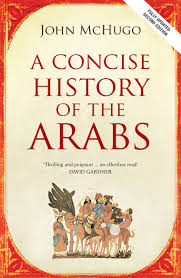by John McHugo
In The Balfour Declaration: Empire, The Mandate and Resistance in Palestine, Bernard Regan shows us what Britain did (and what Britain thought it was doing) by issuing the Balfour Declaration, by incorporating it into the League of Nations Mandate for Palestine, and by governing Palestine in a way intended to implement it. The declaration was, he tells us in the introduction, “first and foremost, the conscious endeavour of an imperialist power pursuing its own ambitions.” That is, sad to say, undoubtedly correct.

The book is arranged thematically in six chapters: Chapter One “War, Empire and Palestine”, Chapter Two: “The Balfour Declaration, Self-Determination and Palestinian Opposition”, Chapter Three “The Mandate and Palestinian Politics”, Chapter Four “Social, Economic and Political Features of Palestinian Resistance”, Chapter Five “British Responses to Palestinian Challenges” and Chapter Six “The Mandate in Context”, which is a conclusion. As is inevitable in a book that is arranged thematically but covers a distinct period of history in a broadly narrative fashion, some important issues require treatment at more than one place in the narrative.
Chapter 1 is devoted to the background on the British side. It covers Britain’s at times desperate situation during the First World War, and deals with the embarrassingly contradictory engagements it entered into as a result: Hussein-McMahon (with the Sharif of Mecca) and Sykes-Picot (with France and Tsarist Russia), as well as the Balfour Declaration. Regan also provides us with important pieces of context such as the accelerating demands for independence in Ireland, and the growth in calls for self-determination that were to become a feature of the post-war political world. He reminds us these calls were made not only by Woodrow Wilson but also by Lenin, and shows how fear of communism became a guiding force in British policy. Much of British policy in the Middle East was concerned with what William Ormsby-Gore, a British official with pronounced Zionist sympathies, called “two great world forces…viz., Islam and Jewry.” The British concern was how to manipulate them, and was thus essentially cynical. But this interesting use of language also betrays how British and other Western policy makers had come to see the Middle East through a prism of religious and sectarian identities that reflected an element of paranoia.
Chapter 2 looks at the decline of the Ottoman Empire, and how there were proposals in British government circles to settle some of its territories. These were not just the aspirations of the Zionist movement, but also tentative British ideas to settle Muslims from British India in the valleys of the Euphrates and Tigris. This is a much overlooked feature of British imperial thought at the time, and Regan is to be commended for drawing this, and some other wrongly neglected matters, to our attention. He gives a succinct sketch of the progress of the Zionist movement under Herzl and then Weizmann, and the politicking that led to the issue of the Balfour Declaration, including the debates within Anglo-Jewry, much or most of which opposed Zionism before the declaration was issued. This takes the story up to the agreement of the draft of the League of Nations Mandate for Palestine in 1922. Because the declaration was itself ambiguous, the Mandate essentially just piled ambiguity onto ambiguity. Despite Britain’s attempts to claim it was supporting the principle of self-determination for the indigenous population, British policy showed that, in Palestine, these were no more than a fig-leaf for the wider imperial project that had become the establishment of a Jewish national home.
Chapter 3 begins with economics and politics in late Ottoman Palestine. Regan shows how Britain, under pressure from the Zionist movement, immediately began tinkering with the relevant land and immigration laws (something that was, incidentally, illegal in international law under Article 43 of the Hague Regulations until the formal commencement of the Mandate in September 1923). He deals with attempts at Palestinian political mobilisation, the position of the notables, generational shifts as time wore on, and the emergence of new political parties, including new nationalist movements and the Communists. Unlike some writers, he gives due importance to the links between Palestine and other Arabic speaking parts of the old Bilad al-Shaam, or “Greater Syria”, and the perfectly legitimate aspiration for Arab unity (this is revisited in Chapter 5). He also shows how, one way or another, the mainstream of the Zionist movement was at heart always exclusivist and successfully set out to frustrate Palestinian political aspirations.
Chapter 4 looks at how the Palestinian people suffered as their fragile economy faced “the juggernaut of the new-imperialist dominated world market.” Regan is damning in his assessment of how British policy left the Palestinians at a huge disadvantage to the settlers. Such Palestinian capitalism as there was often found itself excluded as a result of Britain’s determination to protect the drive to set up the “national home”. This led to the systematic favouring of “enterprises associated with the Yishuv”, and the tolerance of – and cooperation with – discriminatory practices against Palestinian labour by, for instance, the Histadrut. The chapter also looks at trades unions generally, activism by women, the roles of the media and organised religion and their influence on politics, British attempts to introduce inadequate elements of democracy into the legislative process, and the rejection of Palestinian attempts to acquire a properly elected democratic assembly- which Regan dubs “the assassination of the nation”.
Chapter 5 looks at much the same events and trends, investigating them from the vantage point of the British responses to them and taking the narrative into the 1930s. Zionist proto-state organisations were tolerated and encouraged, including the Haganah militia. At the same time, Britain discriminated in favour of the Zionist colonists in the economic field since their movement was providing the funds for the development of Palestine, even though this meant once again favouring one community and excluding the other. As the Yishuv grew in size and became more confident, there were increasing references to the idea of population transfer, which in Regan’s view is “intrinsic to the ideology of Zionism” and would include the appropriation of the economic assets of the Palestinian bourgeoisie. Britain began to toy with the possibility of partition.
He also returns to the developments in Palestinian politics, and the problems Palestinians faced as they strove to build an effective political movement to counter British rule despite Britain’s success at the co-option of many notables, and the blatant favouritism towards the Yishuv in questions of economic policy. He deals perhaps too briefly with the events of 1929 which cemented the divide between Jews and non-Jews, as well as the rise of Nazism which followed shortly thereafter. The chapter concludes by looking at British commissions of enquiry: the Shaw Commission, the Hope Simpson Report and the Passfield White Paper which cast a sharp light on how Britain had failed the Palestinians, together with Ramsay MacDonald’s ostrich-like response in his “black letter”. These policy failures made the descent into violence inevitable.
Regan brings an in depth knowledge as a social and economic historian to his task. This is clear throughout his analysis, as well as in Chapter 6, “The Mandate in Context”, in which he sums up his conclusions and expands on the racism, both subliminal and express, that informed many decisions Britain took in Palestine.
The book is to be recommended even if you are already well versed in the history of the Mandate. Regan puts what took place in Palestine in both its global and its historical contexts, and looks more closely at economic issues than some other writers. He points out how at the time of the declaration imperialism was moving away from colonisation (physical settlement of conquered territory) and colonialism (achieving dominance through the acquiescence of at least a sector of the indigenous population), to the more modern quest for hegemony by controlling markets and resources. Yet it was a highly unusual concatenation of events that led to the strange hybrid of the Palestine Mandate, in which Britain – for the one and only time in its imperial history – indulged settler colonialism by a group of settlers who owed no allegiance to the metropolitan power. In the history of imperialism, this was something very odd.
How did Britain set in motion this tragedy with which we still live? At the time, acquiring Palestine (at very little cost) seemed like a good idea. Britain wished to protect the Suez Canal which was then its imperial lifeline. It wished to keep out its rivals (the Germans while the First World War continued, and then the French in its aftermath). It could achieve all this, and simultaneously enable the Zionist movement to establish its national home in Palestine.
This seemed simple at first glance, but politicians in Whitehall who took the key decisions had a very superficial understanding of what they were getting Britain into. Regan shows how they stubbornly persevered with their policy until Palestine finally exploded into open revolt in the second half of the 1930s, the point at which he ends his narrative. Why they did this is something of a mystery, since it was not obviously in Britain’s interest. He shows how they received warning after warning that they were playing with fire, that pressures were mounting, and matters were going from bad to worse.
The precise combination of ingredients that led to the Israeli/Palestinian tragedy of today will always be discussed. Imperial hubris, a reluctance to admit that policies were based on misconceptions, expediency, and the confirmatory bias shown by key politicians of the day such as Lloyd George, Winston Churchill and Balfour himself – these were all major ingredients. Yet historians will debate indefinitely the precise recipe that was used to blend them together. It is a shame that the book ends in the mid-1930s rather than continuing until Britain’s inglorious departure in 1948. But by telling us the history until the mid-1930s, Regan has more than proved his point. By then, British policy had guaranteed a tragic and unstable future for what are now Israel and Palestine.
John McHugo is a trustee of the Balfour Project. His own assessment of the Balfour Declaration and the Arab-Israeli dispute can be found in his book A Concise History of the Arabs. He is also the author of Syria: A Recent History and A Concise History of Sunnis and Shi’is. johnmchugo.com

